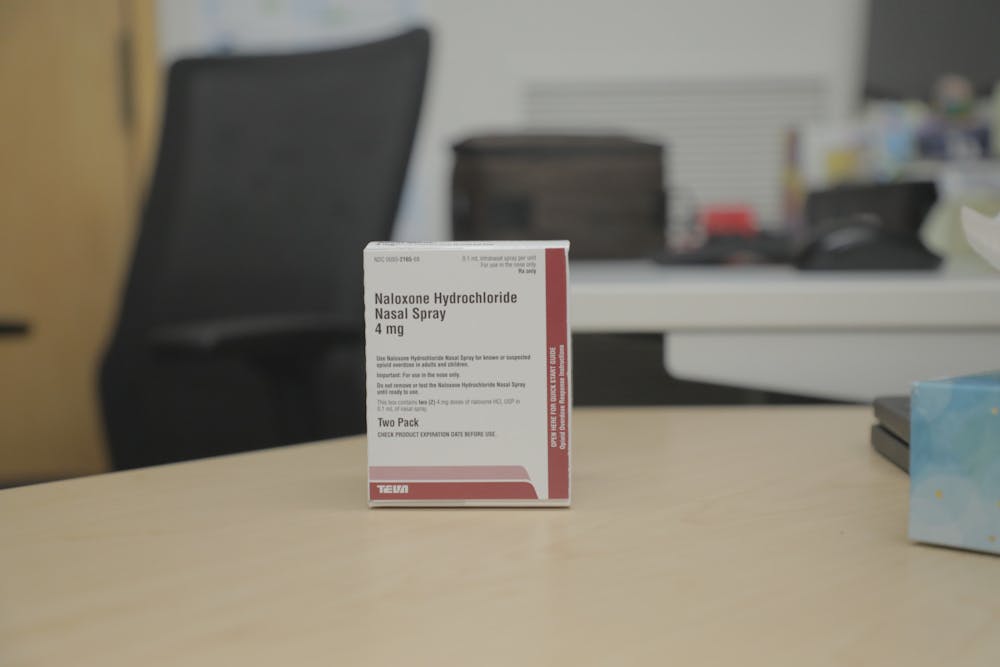Naloxone is now available free of charge at several new locations across Western Washington University, according to an email sent from the Vice President of Student Affairs office.
The medication, often referred to by the brand name Narcan, works to reverse the effects of opioid overdoses. While it can be administered through injection or as a nasal spray, WWU only holds the latter form.
Naloxone is now available at all residence halls, Wilson Library, Viking Union, the Student Health Center and the Counseling and Wellness Center.
There are also several additional locations that plan to offer naloxone by the end of fall. Those include the vending machines in Viking Union and the Campus Services building, by mail through the Counseling and Wellness Center and at future events held by wellness advocates.
University police have carried naloxone since November 2022. Nearly two years later, WWU Chief of Police Katryne Potts is happy to see the medication available to all students.
“It was something that we felt our community wanted. Our students were asking about it, so it’s something that we should have,” Potts said.
Newly signed state legislation has also played a role in ensuring naloxone accessibility on Washington college campuses. Passed last spring, House Bill 2112 requires all higher-education institutions to carry naloxone in various student-accessible locations.
WWU was trying to make sure the medication was accessible even if the law was not passed, according to Potts.
“We were monitoring [the bill], and thinking if this comes through, we need to be ready,” Potts said. “But even if it doesn’t [get passed], where should we have [naloxone] anyway?”
Washington had 2,812 opioid overdose deaths in 2023, a figure that has jumped dramatically from 852 in 2019, according to data from the University of Washington's Addictions, Drug & Alcohol Institute. Washington also had the highest percentage increase of overdose deaths in the nation between February 2022 and February 2023.
Sarah Canavase, a member of the University of Washington Opioid Response Team, provided some guidance on how to tell if someone is overdosing and in need of naloxone.
“If they’re non-responsive, you should lay them flat and rub your knuckles on their chest and put some pressure on them,” Canavase said. “If they don't wake up, the chances are higher that they’ve overdosed and that’s when you should administer the Narcan.”
In cases of overdose, witnesses should always call 911, Canavase said. Those who medically assist overdose victims and are carrying drugs themselves are protected from prosecution under Washington’s Good Samaritan Law.
Those struggling with substance addiction can visit the Counseling and Wellness Center for confidential support.
Sean Lynch (he/him) is a campus news reporter for The Front this quarter. He is a third-year visual journalism major. Outside of reporting, Sean likes skateboarding, reading and playing kendama. You can reach him at seanlynch.thefront@gmail.com.






